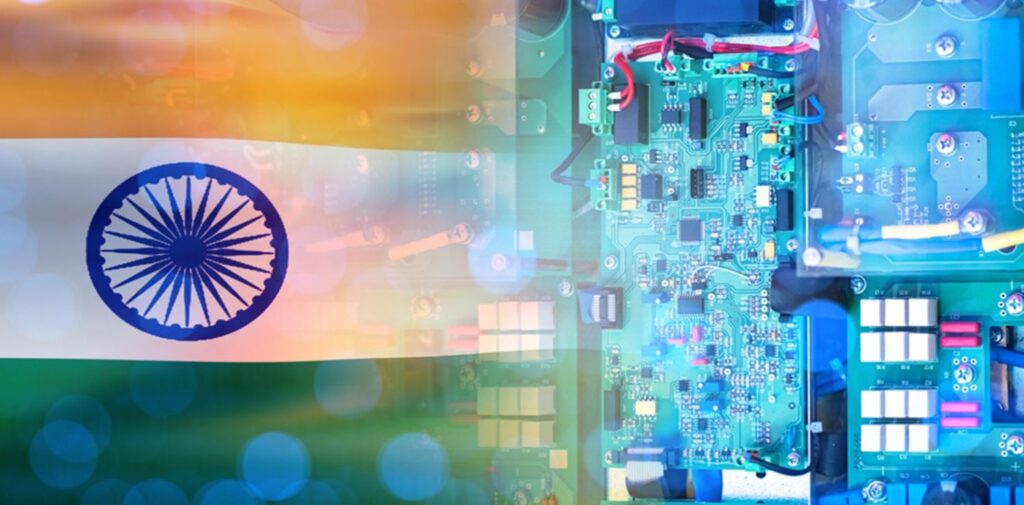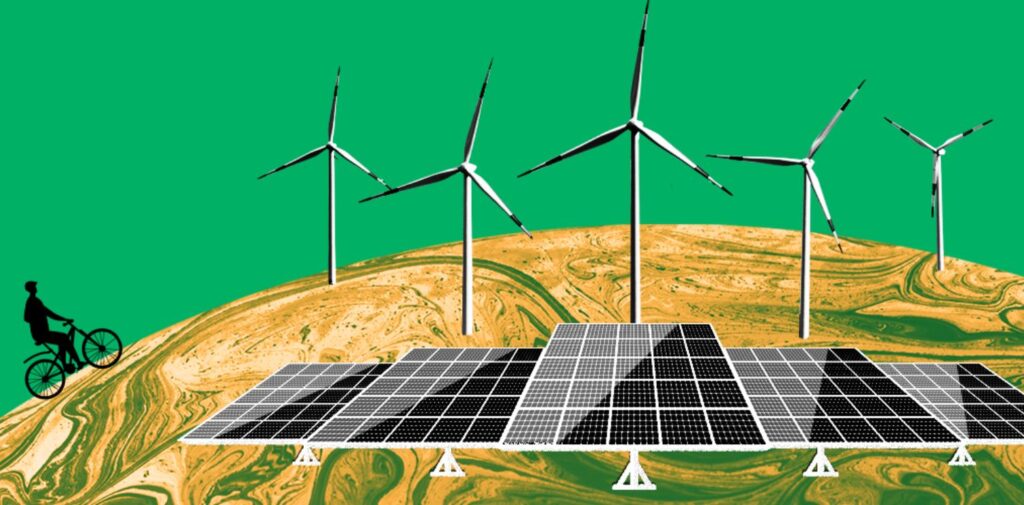In today’s rapidly evolving world, technology plays a pivotal role in solving some of the most pressing challenges humanity faces. India, with its vast pool of tech talent, innovation-driven culture, and growing startup ecosystem, is increasingly becoming a global leader in developing technological solutions to address a range of global problems. From healthcare and agriculture to climate change and education, Indian technology is not only transforming the nation but is also making a significant impact on the world stage. This article explores how Indian technology is contributing to solving global challenges and creating a better future for all.
The Rise of Indian Technology: Innovation and Talent
India’s technology ecosystem has come a long way in the past few decades. What started with a small number of tech companies has now transformed into a booming industry that is driving innovation not just within the country, but across the globe. With a strong emphasis on IT and software services, India is home to some of the biggest tech companies in the world, such as Infosys, TCS, Wipro, and HCL. These companies are providing technology-driven solutions to global businesses, helping them streamline operations, improve efficiency, and achieve better results.
However, it’s not just large corporations that are making waves. India’s startup ecosystem has seen a surge in new companies and tech-driven innovations in recent years. Startups in cities like Bengaluru, Hyderabad, and Pune are developing cutting-edge technologies that are addressing global challenges in various sectors, from artificial intelligence (AI) and blockchain to healthcare, fintech, and agriculture.
The Indian government has also played a crucial role in supporting the technology sector by introducing policies that encourage innovation, such as the Digital India initiative and the Startup India campaign. These efforts have created an environment that nurtures young entrepreneurs and fosters a spirit of creativity and problem-solving.

Healthcare Innovation: Addressing Global Health Challenges
One of the most significant areas where Indian technology is making an impact is healthcare. India has long been a hub for medical research, pharmaceutical manufacturing, and healthcare services. Over the years, Indian companies and startups have developed technologies that are helping to tackle global health challenges.
For instance, India is home to some of the world’s largest pharmaceutical companies, such as Cipla and Sun Pharma, which produce affordable medicines for global markets. Indian pharmaceutical companies are providing generic drugs at a fraction of the cost of branded medicines, making healthcare more accessible to people in low- and middle-income countries.
Additionally, India has become a leader in telemedicine. With a vast population and a shortage of healthcare professionals, India has turned to technology to bridge the healthcare gap. Telemedicine platforms are enabling remote consultations, allowing doctors in urban areas to provide medical advice to patients in rural and underserved regions. These platforms have expanded beyond India and are now helping people in other parts of the world access healthcare, particularly in regions with limited medical resources.
Another key innovation from India is the use of artificial intelligence (AI) in healthcare. Indian startups are leveraging AI to develop tools for early disease detection, personalized treatment, and drug discovery. For example, Indian company Niramai has developed an AI-based solution for early breast cancer detection, which is non-invasive and can be used in low-resource settings.
Agriculture Technology: Feeding the World Sustainably
Agriculture is another sector where Indian technology is helping to address global challenges. India is an agricultural powerhouse, but it also faces challenges like climate change, water scarcity, and low agricultural productivity. Indian innovators are using technology to tackle these problems and improve food security both within India and globally.
One of the most notable advancements in Indian agricultural technology is the development of precision farming tools. These tools use drones, satellite imagery, and IoT (Internet of Things) sensors to collect data on soil conditions, weather patterns, and crop health. By analyzing this data, farmers can optimize irrigation, reduce pesticide use, and improve crop yields. Indian startups like AgNext and CropIn are using AI and data analytics to help farmers make more informed decisions and increase productivity.
India is also pioneering the use of vertical farming and hydroponics, which allow for the cultivation of crops in controlled environments with minimal use of water and land. These technologies have the potential to transform agriculture in urban areas and help address food shortages in densely populated regions around the world.
Furthermore, India’s organic farming movement is gaining global attention as consumers worldwide seek healthier and more sustainable food options. Indian companies are innovating in sustainable farming practices and providing organic produce to international markets, contributing to a more eco-friendly food system.

Climate Change and Renewable Energy: A Sustainable Future
India is one of the countries most vulnerable to the effects of climate change. Rising temperatures, changing rainfall patterns, and increasing natural disasters are affecting the environment and the lives of millions of people. In response to these challenges, India is leveraging technology to develop renewable energy solutions that not only help combat climate change but also provide energy access to underserved regions.
India has become a leader in solar energy innovation, with companies like Tata Power Solar and Adani Green Energy playing a significant role in the global renewable energy market. India’s solar industry has grown rapidly, and the country now ranks among the world’s top producers of solar power. Indian startups are also working on solar-powered solutions for rural areas, where access to electricity is limited. These solutions can improve the quality of life for millions of people by providing reliable and affordable energy.
Moreover, India is investing heavily in electric vehicles (EVs) and battery storage technologies. Indian companies like Tata Motors and Ola Electric are making strides in producing affordable EVs, which can help reduce greenhouse gas emissions and air pollution. By encouraging the adoption of electric vehicles, India is contributing to the global effort to transition to cleaner and more sustainable transportation.
Education Technology: Bridging the Global Learning Divide
Education is another area where Indian technology is making a significant impact. While India has made impressive strides in expanding access to education within the country, Indian edtech companies are also helping to solve global educational challenges.
The rise of online learning platforms has been a game-changer for students in remote areas and developing countries. Indian companies like BYJU’S, Vedantu, and Unacademy are providing high-quality, affordable education to millions of students around the world. These platforms offer interactive lessons, live tutoring, and exam preparation, allowing students to learn at their own pace, regardless of their location.
In addition, Indian companies are using AI and machine learning to create personalized learning experiences. These technologies help identify students’ strengths and weaknesses, offering tailored content to improve their learning outcomes. Indian edtech innovations are making education more inclusive and accessible, particularly in regions with limited resources and infrastructure.

Digital Payments: Empowering Financial Inclusion Worldwide
India’s digital payments revolution has not only transformed its economy but also has the potential to impact the global financial landscape. The Unified Payments Interface (UPI), launched by the National Payments Corporation of India (NPCI), has revolutionized how people in India make transactions. UPI allows users to send and receive money instantly using their smartphones, making financial transactions quicker, cheaper, and more convenient.
The success of UPI has inspired several other countries to adopt similar digital payment systems. Indian fintech companies like Paytm, PhonePe, and Razorpay are working with international partners to promote financial inclusion and create seamless digital payment systems in countries across Africa, Southeast Asia, and the Middle East. These technologies help empower individuals who previously had limited access to banking services and contribute to economic growth in underserved regions.
Conclusion
India’s technological innovations are making a significant impact on global challenges, ranging from healthcare and agriculture to climate change and education. By harnessing the power of AI, data analytics, renewable energy, and digital payments, Indian technology is helping to address critical issues faced by the world today. As India continues to innovate and collaborate with global partners, it is poised to play a key role in shaping a more sustainable, inclusive, and prosperous future for all.




